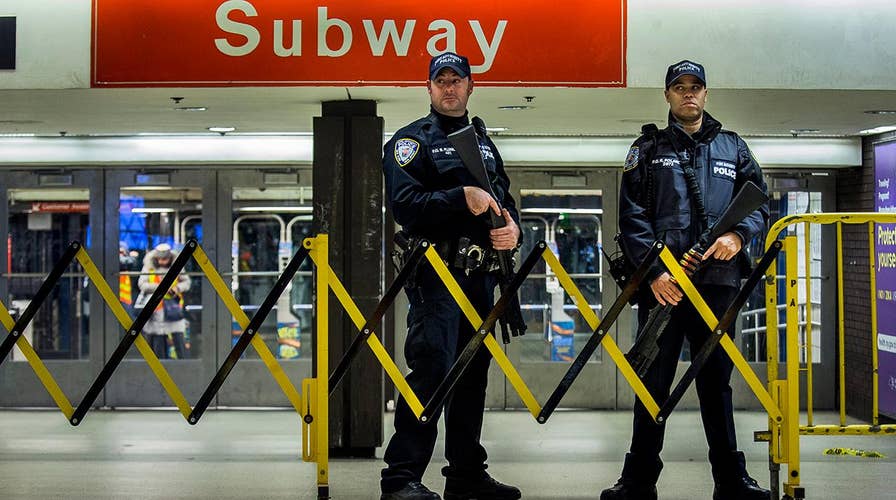Federal charges for suspect in botched subway terror attack
27-year-old Brooklyn resident from Bangladesh was not previously known to authorities; senior correspondent Rick Leventhal reports from New York's Port Authority.
As a physician, I once trained and worked in the emergency room at Bellevue Hospital in New York. I remember the “trauma slot,” a large concrete common room at the heart of the ER that’s at the ready 24/7 to treat victims of blunt and penetrating trauma, including gunshot wounds. The Bellevue Trauma and Shock Unit is one of the oldest and most accomplished trauma programs in the country, evaluating close to 1,000 patients per year. Since perpetrators and their victims are frequently brought in at the same time, it is not uncommon to see them lying next to each other on stretchers, with the “perp” chained to his.
I remember the strange emotions — a mixture of anger at the shooter and compassion for the victim — that I felt the first time I saw this. I also learned one of the hardest lessons of my career: As physicians, we can’t distinguish. We have to do our best to save both. Once we superimpose moral judgments on top of our skill set, our effectiveness is compromised. As the Oath of Maimonides says, “May I never see in the patient anything but a fellow creature in pain.”
A few years ago I reported for Fox News on the Israeli-Syrian conflict, where doctors in northern Israel were treating Syrians who had been wounded while fighting Israelis. The conflicting emotions a doctor feels at times like that are hard to describe, but they ultimately give way to a training reflex: Help a patient survive and recover, no matter what the circumstance.
This unspoken clinical rule of treating all patients equally was never tested more than over the past two months at Bellevue.
We physicians are bound by our oath to treat all patients equally, regardless of circumstances.
On Oct. 31, 29-year-old Sayfullo Saipov allegedly drove his pickup truck down the bike path by West Street in Manhattan (I ride that trail frequently), killing eight and wounding 11, including a young teen who needed ICU care and a woman who needed bilateral amputations and reportedly may face paralysis.
Saipov, allegedly an ISIS sympathizer, was shot in the upper thigh by police and brought with his victims to Bellevue, where doctors worked around the clock to care for all of them. “It’s not up to the doctors to make judicial decisions,” a supervising physician told me. “No matter how unpalatable it may be, our obligation is to treat the injured, irrespective of the horrific deeds perpetrated.”
After a few days, Saipov was moved to the prison ward on the 19th floor, an isolated, highly secure ward where, during my residency training, I provided medical treatment for prisoners who had committed a variety of crimes, including murder. I was conscious of the criminality, but it never interfered with the care I delivered.
On Dec. 11, another ISIS-inspired man, Akayed Ullah, is accused of detonating a pipe bomb he wore against his abdomen in a pedestrian tunnel that connects New York’s Port Authority Bus Terminal with the Times Square subway station. Ullah was brought to Bellevue with soft tissue wounds and a blast injury to his liver. He underwent surgical debridement of the wound and is expected to recover rapidly, according to a source who certainly does not wish him well.
Luckily, injuries to the public were slight this time: A few cases of headache and hearing loss were brought to other hospitals. The psychological injury to people near the blast was much greater than any physical wound.
We physicians are bound by our oath to treat all patients equally, regardless of circumstances. At the same time, we wouldn’t be human if we didn’t lie awake at night worrying that we may save a terrorist animal who could go out and kill and terrorize again.

